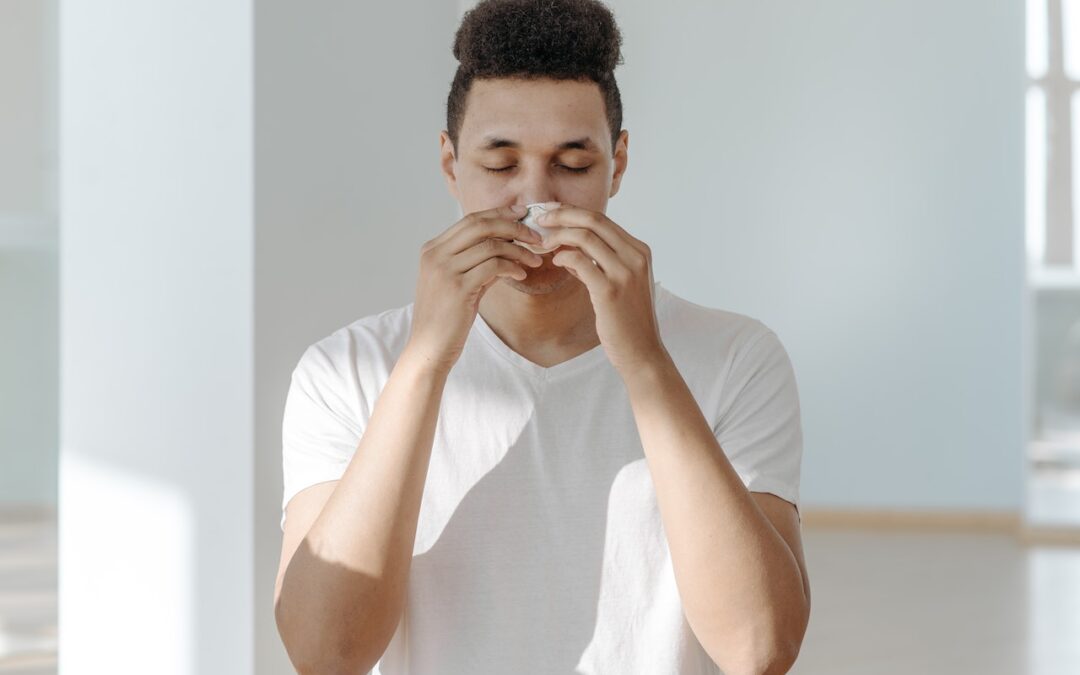Allergies are not only seasonal but can occur throughout the year. During the spring, trees release pollen, while during the summer, grasses do the same. In the fall, weeds are responsible for allergies, and even in winter, people in warm climates can experience allergies because some plants may not go dormant. This is where the term “winter allergies” come from.
What Are Winter Allergies?
Winter allergies, just like any other seasonal allergies, are caused by the body’s immune system overreacting to certain allergens in the environment.
What Are the Common Causes of Winter Allergies?
One of the most common causes of winter allergies is pet dander. During the winter, our homes are often closed up tight, and the air quality can be poor. This allows pet dander to accumulate in the air, leading to allergic reactions when we breathe it in. To best manage a pet dander allergy, it’s important to keep your home clean and vacuum regularly. You should also consider keeping pets out of the bedroom, as this is where you spend the most time.
Another common cause of winter allergies is dust mites. These tiny arachnids thrive in warm, humid environments and can be found in bedding, furniture, and carpets. Dust mites are particularly problematic in winter because they thrive in the warm, dry air of our homes. To best manage a dust mite allergy, you should use mattress and pillow covers that contain dust mite-resistant materials. You should also consider investing in a dehumidifier to keep humidity levels in the home at an optimal level.
Finally, cold weather can cause an increase in indoor allergens. During the winter, we tend to stay inside more often, and the air can become stagnant. This is an ideal environment for allergens like mold, mildew, and pet dander to thrive. To best manage these allergens, you should open windows and doors to let in the fresh air, keep the humidity level in your home low, and regularly clean and vacuum.
What Are the Typical Symptoms of Winter Allergies?
The most common symptoms of winter allergies include sneezing, coughing, itchy and watery eyes, runny nose, and congestion. People with winter allergies may also experience headaches, fatigue, and sinus pressure. Allergies can also cause asthma attacks, leading to chest tightness, wheezing, and difficulty breathing.
People with winter allergies may also develop a skin rash, which is caused by an allergic reaction to the allergens in the air. This rash can cause redness and itching at the site of contact.
If you are experiencing any of these symptoms, it is important to seek medical advice. Your doctor can help you determine if you are suffering from a winter allergy and recommend a course of treatment. This may include antihistamines and decongestants or allergen immunotherapy, a series of shots designed to reduce your sensitivity to certain allergens.
Conclusion
Winter allergies are definitely annoying, and it is the last thing you want to deal with when trying to enjoy the cold outdoors. If you are dealing with winter allergies, we highly recommend taking action immediately, such as keeping your home dust-free, using air filters, and even reaching out to the doctor for advice. In doing so, you can keep your allergies under control to give you a chance to enjoy the cold winter season as comfortably as possible!
QEStrong offers innovative health solutions for families and furry friends to ensure a healthy, happy life. If you are looking for allergy relief help, reach out to us today.








Trackbacks/Pingbacks